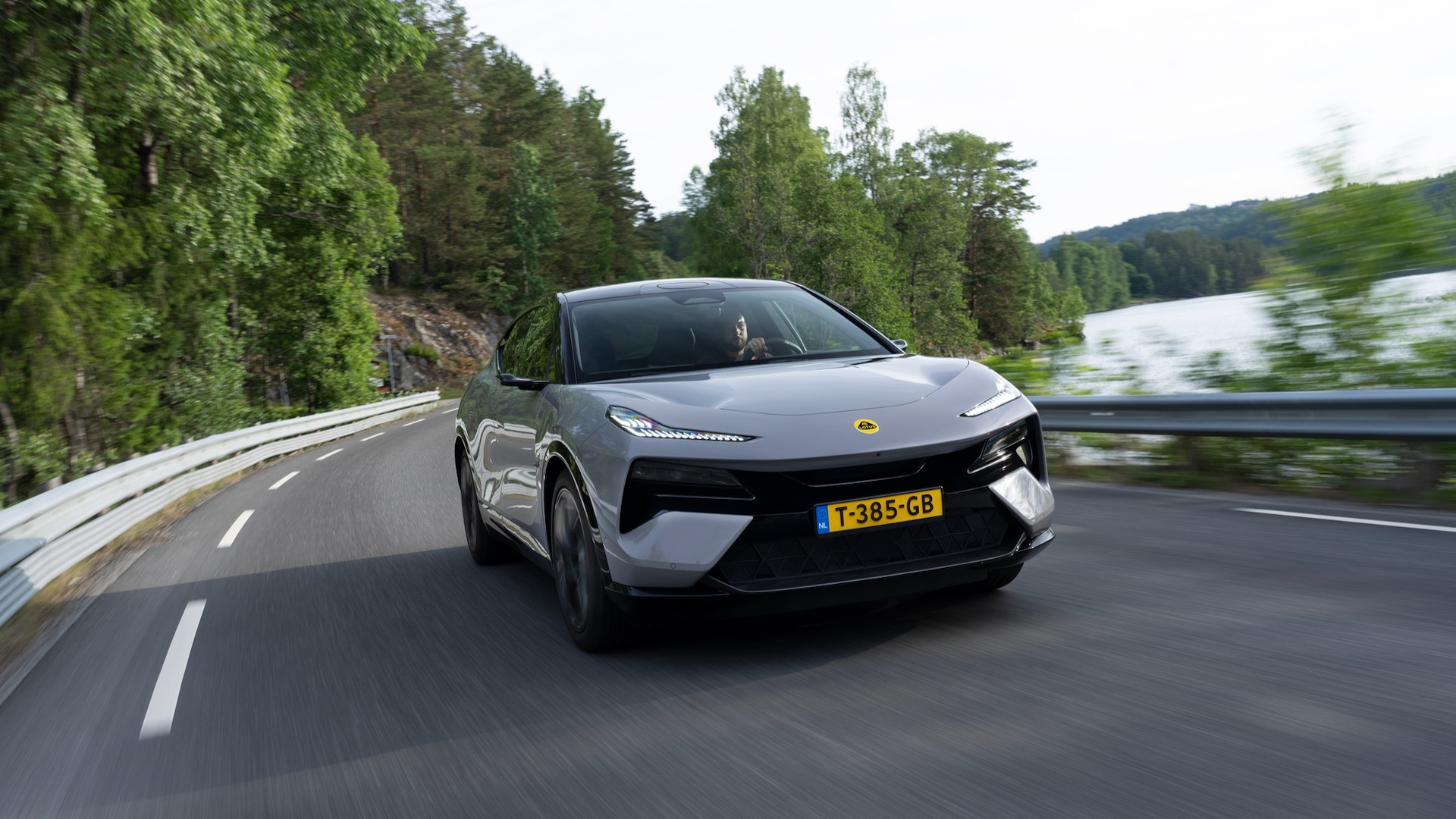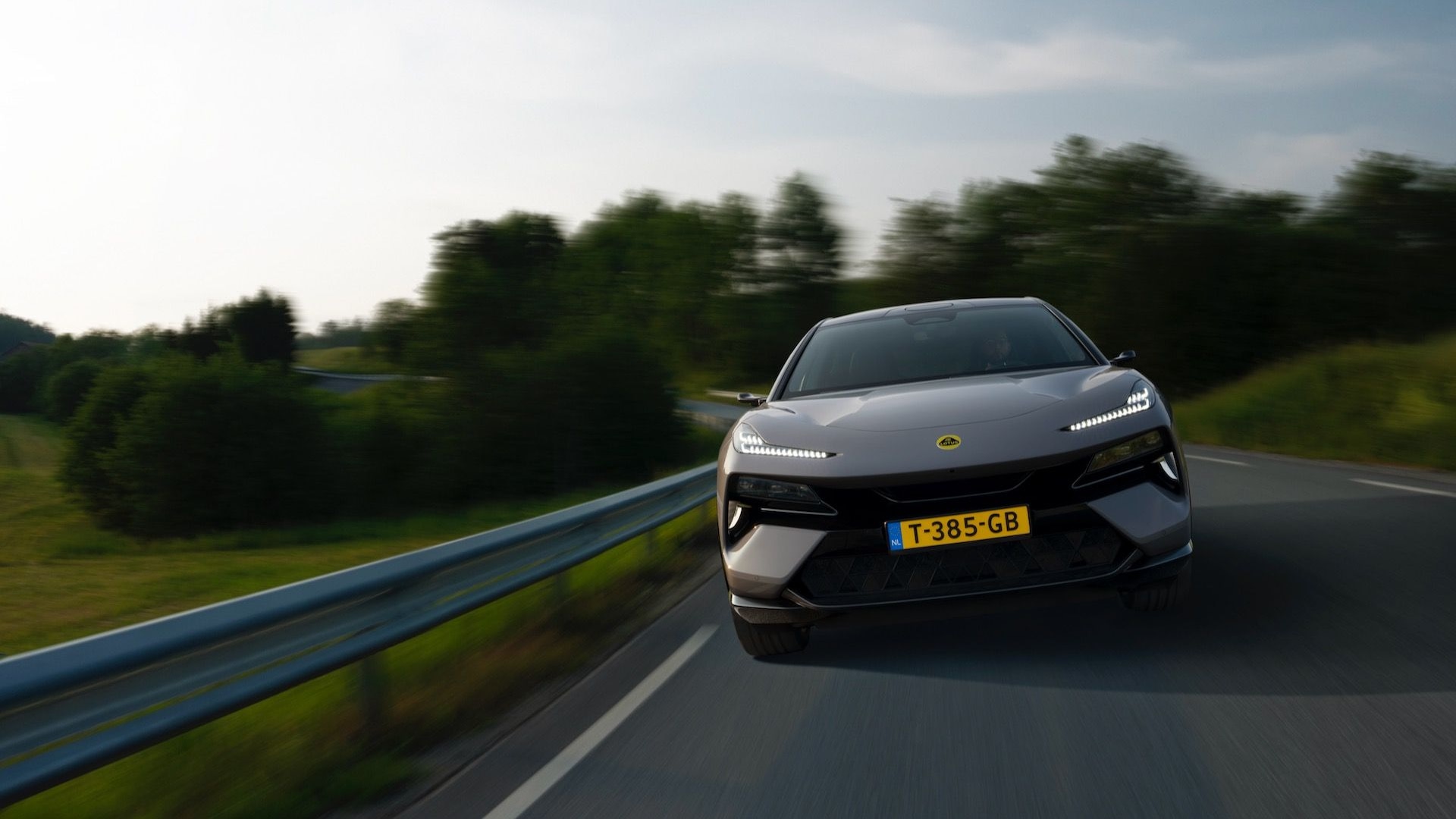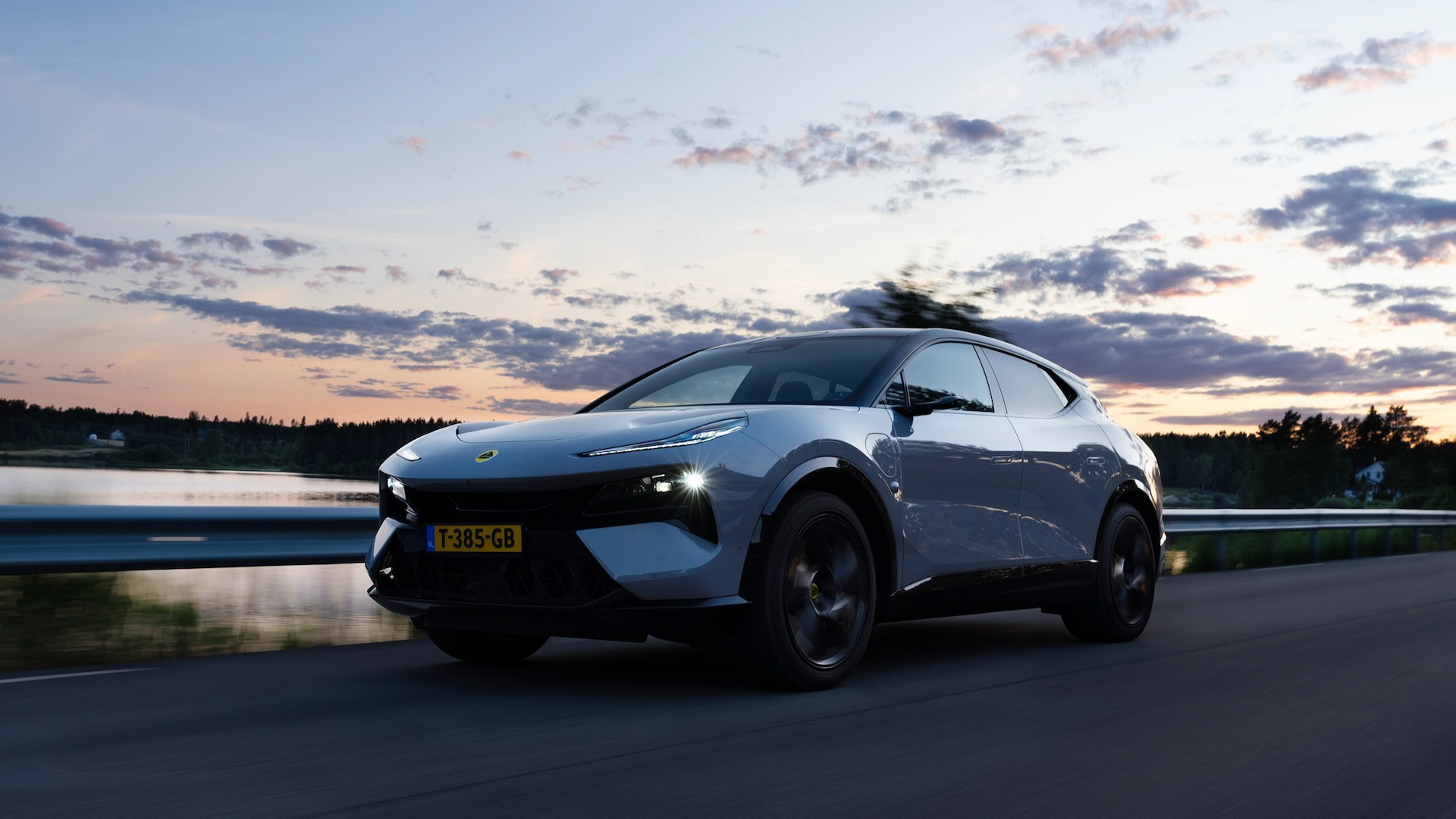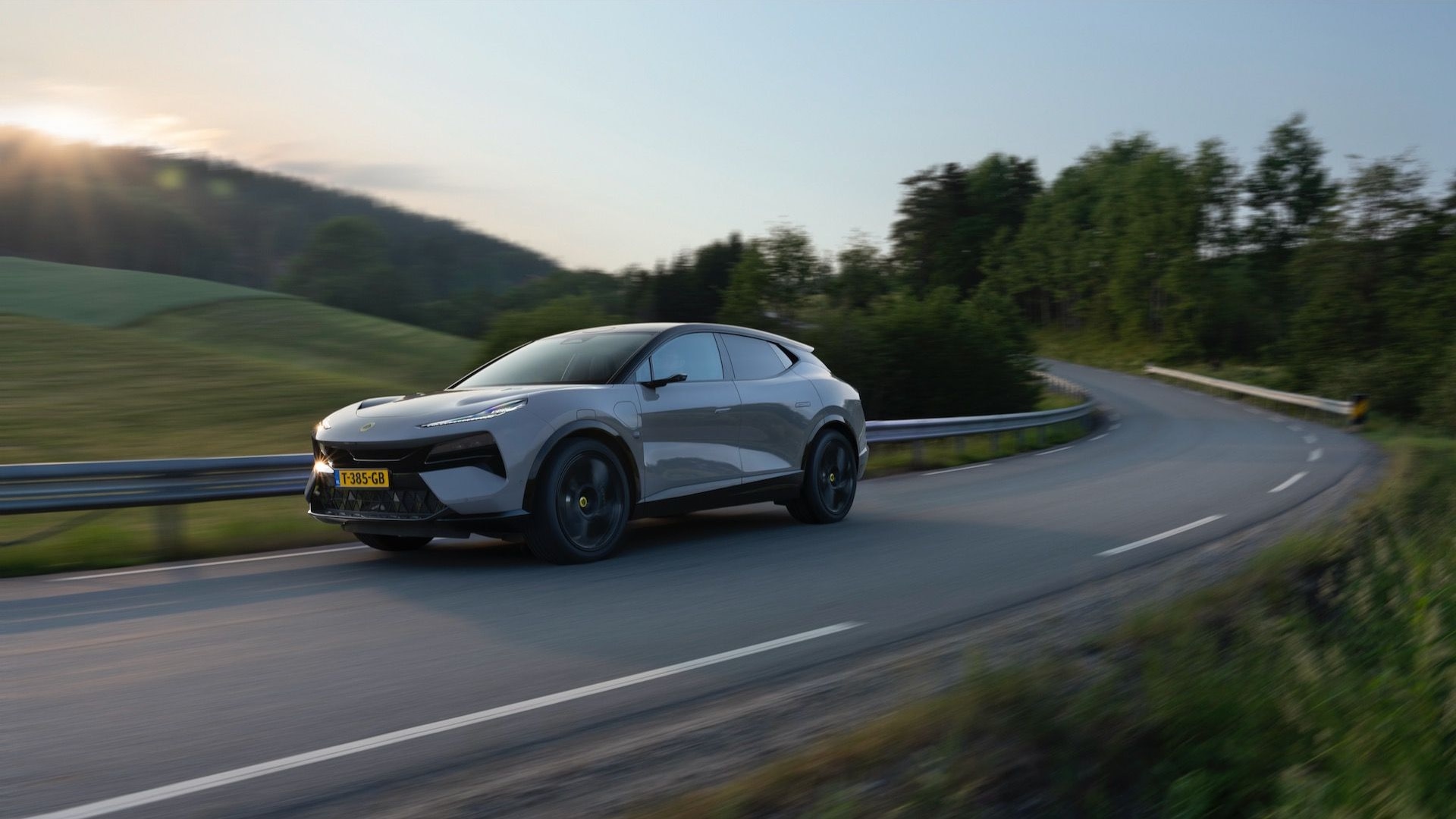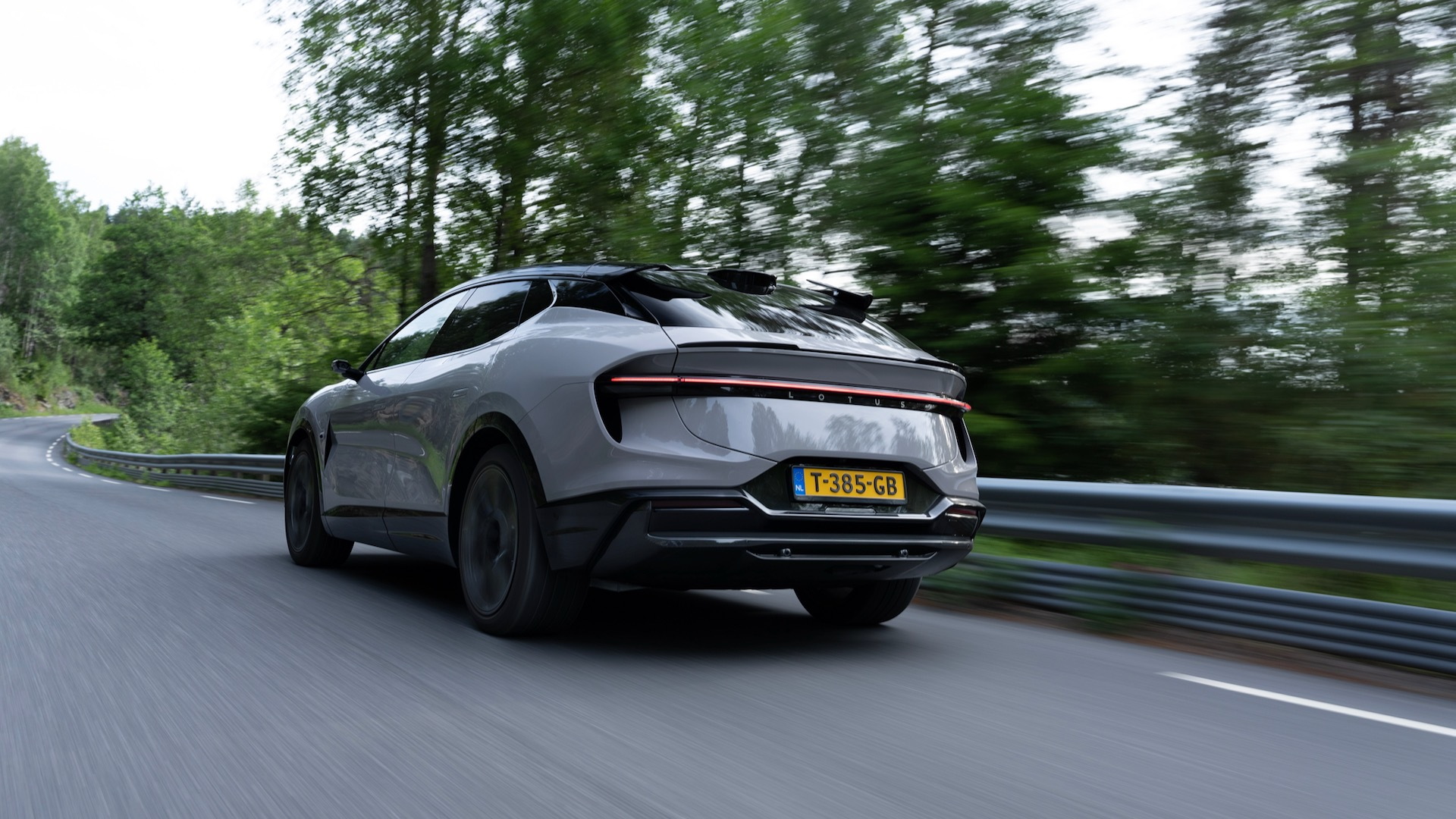The Lotus Eletre electric SUV will boast very fast charging to go with its bevy of performance and tech features.
The first SUV from the British automaker known for sports cars, and one of several planned electric models, the Eletre uses an 800-volt electrical architecture that allows for 350-kw DC fast charging—matching the maximum power rate widely available from public chargers in the U.S.
After revealing the Eletre over a year ago, Lotus finally confirmed this week that the Eletre will be able to accomplish a 10-80% charge in 20 minutes, or add 74 miles of range in just five minutes of charging. A standard 22-kw AC charger can, when teamed with a home wallbox to support that, take the battery from 0-100% charge in less than six hours, according to Lotus.
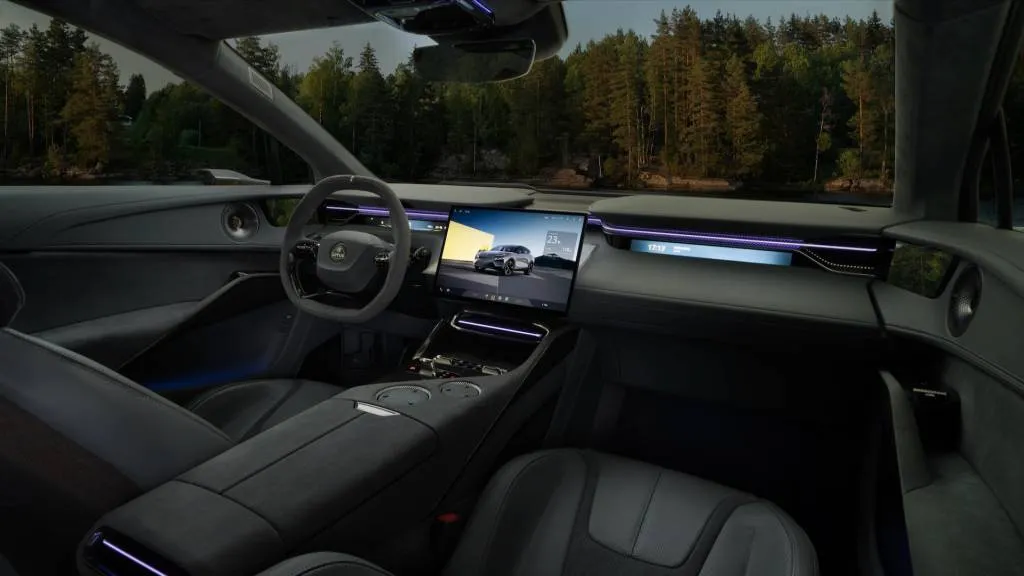
Lotus Eletre
Lotus is offering base Eletre, mid-level Eletre S, and top Eletre R models, all with a 112-kwh battery pack. The pack features prismatic cells in a cell-to-pack configuration that eliminates battery modules, decreasing weight and increasing energy density to more than 175 watt-hours/kilogram, Lotus claims. European WLTP range estimates are 373 miles for the base Eletre and Eletre S, and 304 miles for the Eletre R.
Lotus founder Colin Chapman followed the maxim "simplify and add lightness" when designing Lotus' petite sports cars and race cars, but today's Lotus engineers could only do so much with a vehicle of this size (at 200.9 inches, it's longer than a Range Rover) with a larger battery pack onboard. Even the lightest Eletre—the base model—weighs a hefty 5,489 pounds. That's with what Lotus claims is extensive use of aluminum in the Eletre's Electric Premium Architecture (EPA) platform.
Performance isn't lacking, though. A dual-motor all-wheel-drive powertrain is standard, producing 603 hp and 523 lb-ft of torque in the Eletre and Eletre S, and 905 hp and 726 lb-ft in the Eletre R. That version will do 0-62 mph in 2.9 seconds and reach a 165-mph top speed, according to Lotus, while other versions take 4.5 seconds to reach 62 mph and top out at 160 mph. Adaptive air suspension, active anti-roll bars, brake-based torque vectoring, and four-wheel steering should help manage the mass in corners.

Lotus Eletre
Lotus also claims a coefficient of drag of just 0.26, with active aerodynamic elements to maximize efficiency and performance. An active grille can open and close as needed for cooling or aerodynamic benefit, while an active rear spoiler can adjust to provide either additional downforce or less drag, as needed. Pop-up lidar sensors for the driver-assist systems and camera mirrors (for Europe and China, at least) help further reduce drag.
Inside, the Eletre features a 15.1-inch OLED touchscreen, 12.6-inch OLED instrument cluster, and a 29.0-inch head-up display. The dashboard itself was designed with the minimal amount of material necessary, to further save weight. Available Re-Fibre upholstery is made from fashion-industry waste, reducing consumption of raw materials, according to Lotus. In keeping on-brand, the automaker also noted that this material is lighter than leather upholstery.
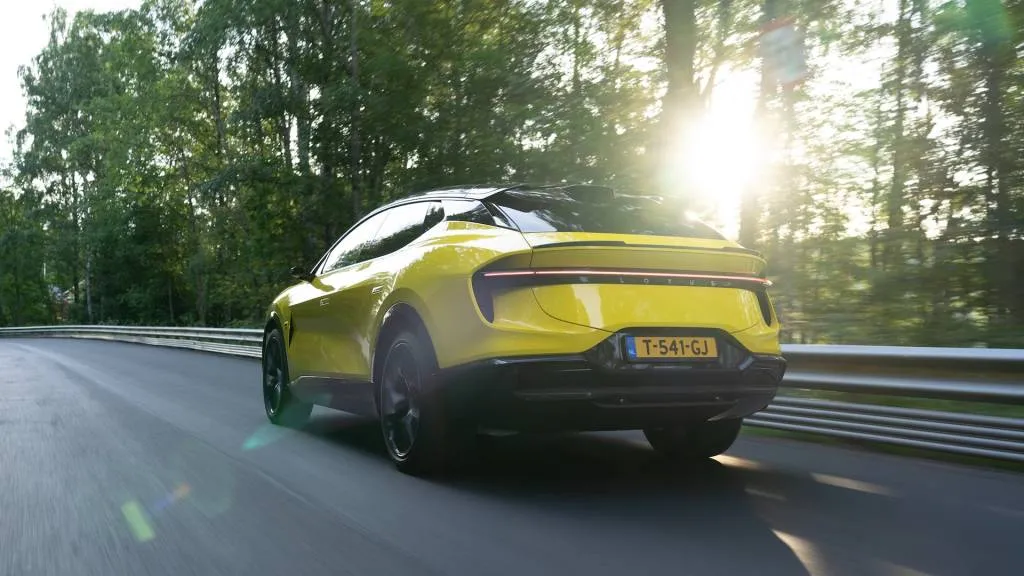
Lotus Eletre
Eletre deliveries have already begun in China and are scheduled to start in the U.K. and Europe soon. Pricing starts at 89,500 British pounds and 95,990 Euros, equivalent to roughly $114,000 and $105,000 at current exchange rates, respectively. Lotus hasn't discussed a timeline for U.S. sales.
The Eletre is Lotus' first volume EV, following the very limited production Evija supercar. The automaker has some notable history with electrification, as the original Tesla Roadster was based on the Lotus Elise.
The brand's electrification shift is set to continue with a high-volume sports car launching in 2026, and potentially pushing battery cell packaging further in the name of light-weighting, along with a four-door coupe and a smaller SUV. The latter is expected to be unveiled later this year, with the four-door coupe debuting in 2025.
